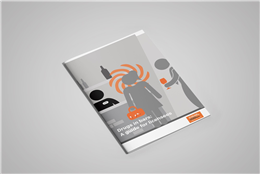Tools about host responsibility and drugs in bars

Imagine you’re managing a bar, and someone tells you they just saw a guy selling MDMA in the bathroom. Or a woman who seems quite intoxicated tells you she thinks her drink has been spiked. What do you do? A new suite of information by the NZ Drug Foundation and Health Promotion Agency could help.
People using drugs in a bar or nightclub are exposing themselves and others to risk, and a lot of the responsibility for managing that risk falls on the shoulders of licencees, managers and other staff. Despite this high level of accountability, there’s never been much information about how to manage drug use in bars – until now.
It’s not well known that licensees and managers have a legal and moral obligation to be responsible hosts to all customers – even those using illicit drugs. The very definition of intoxication in the Sale and Supply of Alcohol Act 2012 spells it out: Intoxication is “being observably affected by alcohol, other drugs and/or substances”.
NZ Drug Foundation’s Drug Demand Reduction Programmes Manager Nathan Brown says customers using illicit substances, particularly in combination with alcohol, expose themselves and others to all kinds of risks including injury from overdose or unsafe use, or the potential for assault or sexual assault.
Nathan says bar staff should be trained to recognise the risks and intervene confidently when they need to. Any issues left unchecked will eventually attract the attention of Police – jeopardising an establishment’s licence. “So it’s important for people in this industry to know the law and keep people safe.”
To help licensees take a proactive approach to manage these issues, the Drug Foundation has produced a Drugs in Bars guide, video and infographic.
“New Zealand’s outdated drug laws deter many licensees and managers from proactively addressing problems from drug use in a way that’s responsible and fair,” Nathan says. “This booklet aims to clarify what the law does and doesn’t say and offers strategies to ensure problems are minimised.
“For example, a common misconception in New Zealand is that a nightclub can screen for drugs at the entrance with a physical pat-down. That’s not true – security staff simply don’t have the right to conduct this kind of physical search.”
The Drug Foundation suggests that licensees incorporate substance use issues in their Host Responsibility Policy and Implementation Plan. This should express their commitment to reducing harm from substance use and outline how they intend to create a safe environment, handle substances safely, protect customer privacy and respond to substance or drug-related issues effectively.
Recent news

Reflections from the 2024 UN Commission on Narcotic Drugs
Executive Director Sarah Helm reflects on this year's global drug conference
What can we learn from Australia’s free naloxone scheme?
As harm reduction advocates in Aotearoa push for better naloxone access, we look for lessons across the ditch.

A new approach to reporting on drug data
We've launched a new tool to help you find the latest drug data and changed how we report throughout the year.

